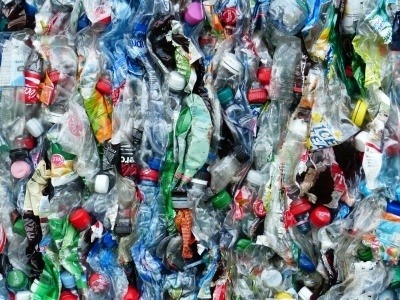ZWE publishes chemical recycling pledge
Zero Waste Europe (ZWE), alongside ECOS and Deutsche Umwelthilfe (DUH), has released its chemical recycling pledge, titled ‘Setting a truly circular recycling system’. The trio aim to ‘define the civil society position towards chemical recycling’, calling on European institutions to help create a ‘legislative framework for chemical recycling based on precautionary principles, transparency, as well as social and environmental justice.’
 With the aim of bringing an ‘alternative position to the debate on chemical recycling’, ZWE highlights that a push for chemical recycling shouldn’t divert attention from ‘the real solution to plastic pollution’ – reduction, prevention and reuse practices.
With the aim of bringing an ‘alternative position to the debate on chemical recycling’, ZWE highlights that a push for chemical recycling shouldn’t divert attention from ‘the real solution to plastic pollution’ – reduction, prevention and reuse practices.
Whilst promoters of such technologies have labelled them as an ‘enabling factor’ for a circular plastic economy, ZWE notes that ‘uncertanties remain’ over their environmental and health impact. There are indications, the organisation says, that chemical recycling only works under very specific, narrow conditions and that ‘it consumes energy, water, and chemical resources that increase water, air, and land pollution.’
‘Setting a truly circular recycling system’ seeks to ensure that the design and implementation of chemical recycling will ‘mitigate’ potential environmental and climate impacts, and that technologies will be used as complementary tools to reduction, reuse, and mechanical recycling – ‘with the latter always taking priority over chemical recycling’. Technologies that burn plastic waste into fuel, ZWE adds, should be excluded from a recycling system.
The pledge presents six principles to ‘achieve a truly circular economy for plastic’:
- Products should be designed taking the full lifecycle into account, enabling material reduction, reuse, and mechanical recyclability. Chemical recycling or recovery options are no excuse for failing to do so.
- Following environmental impact assessments, chemical recycling and recovery technologies should be ranked below mechanical recycling in the waste hierarchy, and the concerned feedstock should be limited to degraded durable plastic waste that cannot be mechanically recycled.
- Once mixed with virgin plastics, the outputs should contain a verifiable amount of recycled content using a controlled blending chain-of-custody model, allowing the traceability of real recycled content present in final products.
- To be classified as chemical recycling, technologies should be able to convert at least 80 per cent of the carbon content of plastic waste into new products when discounting all pre-treatment and post-treatment processes until polymerisation - i.e. once the chemically recycled plastic feedstock is ready to be integrated into a new product.
- Living in a toxic-free environment is a right all citizens should be able to enjoy. Chemical recycling technologies shall, thus, deliver safe, non-toxic, and decontaminated products, by-products, and waste.
- Following principles of social, economic, and environmental justice, the development of chemical recycling facilities should not come at the expense of their surrounding environment and communities.
Concluding the pledge, the organisations state: “We call on our decision-makers at local, national, and European levels to play their part by taking ambitious measures to establish a recycling system that really supports business models of reuse and refills; and that ensure the protection of the environment and human health.
“We ask you to set ambitious environmental efficiency targets and support them with the necessary measures and standards in the revised Packaging and Packaging Waste Directive.
“We urge you to take a precautionary approach when integrating new recycling techniques in the upcoming revision of the Waste Framework Directive, thus ensuring the development of a truly suitable and sustainable waste management system.”




